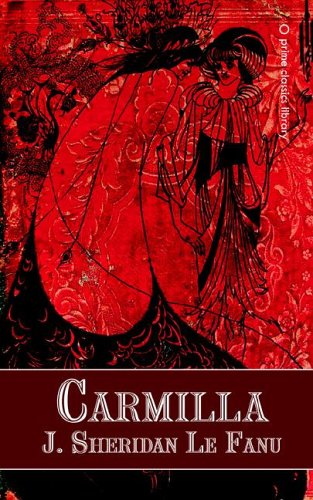 “…As economists say, ‘the 100 dollar bills have all been picked off the pavement’. So I’m making it my life’s work to put a few back down. Hey, can I use the bathroom?”
“…As economists say, ‘the 100 dollar bills have all been picked off the pavement’. So I’m making it my life’s work to put a few back down. Hey, can I use the bathroom?”
Can I use the bathroom? Dana considered again the strange man in front of her. He wasn’t handcuffed, because that wasn’t her style. She felt they added an uncomfortable vibe to interrogations. There were no officers flanking him. Same reason.
Maybe these things and his obvious insanity had led him to misunderstand the situation, and think he was in less trouble than he actually was.
“Permission not granted, Mr Jensen.” She snapped. “We’ve now been talking for twenty minutes, and I still don’t understand why you did it. For what it’s worth, I think you’re fucking with me.”
“But it’s really simple,” he babbled excitedly. “Remember being a child, and seeing all the presents under the tree? Remember the mystery?”
Dana was Jewish, but she would not even give this man the dignity of a monkey wrench in the gears.
“And then you unwrapped them. A plastic wristwatch. A cheap Fisher-Price keyboard. Disappointing. You almost wished you could hit rewind and go back to when they were wrapped under the tree, didn’t you? That’s what I do. Most people solve mysteries. I create them. I leave wrapped presents around the world, for experts to find.”
Creating mysteries was a strange phrase for vandalising ancient works of art.
Yakub Jensen had been taken into custody earlier that morning, after he’d been caught defacing a priceless piece of pottery at Brooklyn Museum.
To the media, it was a storm in a teacup. Dana could attest that any storm seems big when you’re in the middle of it.
The Zuabu Bowl was an ancient piece of clay inscribed with imagery in auspice of an ancient Assyrian king. For historians, it was a seminal example of Levantine pottery. For modern day kings and princes, it was a source of national pride. The Brooklyn Museum had spent several million dollars in its acquisition.
Yakub Jensen had been examining the bowl behind its glass case, and had requested that the museum assistant leave him in private for a moment.
“I’m sorry, but your presence distracts.” His exact words.
The assistant – who was doubtless now spit-polishing his resume and ignoring all voicemail – had obeyed, shutting the door behind him. Yakub had been left alone with the Zuabu Bowl for a full five minutes, until a passing visitor had put his ear to the door and heard the chink-chink-chink of a hammer and chisel.
The vandalism had outraged and appalled the archaeological world, and had nearly sparked an international crisis.
For the past six hours since Jensen had been arrested, Dana had been hit with phone call after phone call.
Three museum curators. The head of the Archaeological Institute of America. The vice president of Syria. She’d even had the crown prince of Saudi Arabia – the fucking crown prince of Saudi Arabia – on the phone, jabbering away in remedial English. She’d instinctively held the phone receiver away from her head while talking to him, as if spittle was travelling through thousands of miles of cable to spray in her face.
They’d all said essentially the same thing. Death is too good for this man.
Yakub Jensen was now the meat in a delicate diplomatic sandwich, with various bodies and agencies trying to determine what to do with him. Dana had been summoned to get answers.
And now things were getting really strange.
No Comments »
 “I still believe that a car with the gas needle on empty can run about fifty more miles if you have the right music very loud on the radio.” – Hunter S. Thompson
“I still believe that a car with the gas needle on empty can run about fifty more miles if you have the right music very loud on the radio.” – Hunter S. Thompson
“Tragedy is when I cut my finger. Comedy is when you fall into an open sewer and die.” – Mel Brooks
“I hardly ever talk- words seem such a waste, and they are none of them true. No one has yet invented a language from my point of view.” – Aleister Crowley
“If someone you never met calls you ‘arrogant’, it means he can’t find anything else. Otherwise, he would have called you “wrong’.” – Unknown, via Slate Star Codex
“Lies propagate, that’s what I’m saying. You’ve got to tell more lies to cover them up, lie about every fact that’s connected to the first lie. And if you kept on lying, and you kept on trying to cover it up, sooner or later you’d even have to start lying about the general laws of thought. Like, someone is selling you some kind of alternative medicine that doesn’t work, and any double-blind experimental study will confirm that it doesn’t work. So if someone wants to go on defending the lie, they’ve got to get you to disbelieve in the experimental method. Like, the experimental method is just for merely scientific kinds of medicine, not amazing alternative medicine like theirs. Or a good and virtuous person should believe as strongly as they can, no matter what the evidence says. Or truth doesn’t exist and there’s no such thing as objective reality. […] If you once tell a lie, the truth is ever after your enemy; and there’s a lot of people out there telling lies.” – Eliezer Yudkowsky
“These people don’t see that if you encourage totalitarian methods, the time may come when they will be used against you instead of for you. Make a habit of imprisoning Fascists without trial, and perhaps the process won’t stop at Fascists.” – George Orwell
“I love deadlines. I love the whooshing noise they make as they go by.” – Douglas Adams
“Ask a scientist what he conceives the scientific method to be and he adopts an expression that is at once solemn and shifty-eyed: solemn, because he feels he ought to declare an opinion; shifty-eyed because he is wondering how to conceal the fact that he has no opinion to declare.” – Sir Peter Medawar
“Cats aren’t clean, they’re just covered with cat spit.”
– John S. Nichols
“[I]sn’t it sad to go to your grave without ever wondering why you were born? Who, with such a thought, would not spring from bed, eager to resume discovering the world and rejoicing to be part of it?”
? Richard Dawkins
To describe something as ‘thought provoking’ usually means one can’t think of anything else to say about it. – Anthony Veitch
“I’m on a government watch list. But I’m not interested, because government watches only work twenty minutes out of every hour.” ? Jarod Kintz
“Just as there is a dichotomy in law: ‘innocent until proven guilty’ as opposed to ‘guilty until proven innocent’, let me express my rule as follows: what Mother Nature does is rigorous until proven otherwise; what humans and science do is flawed until proven otherwise.””
“Perhaps we go to the forbidden door or window willingly because we understand that a time comes when we must go whether we want to or not…and not just to look, but to be pushed through. Forever” – Stephen King
No Comments »
 One of the books you’ve read even if you haven’t, because it’s influenced everything. A story about a vampire written before Dracula, Carmilla is set in a castle in Austria, right next door to Hungary, where the word vampire originates in the form of vampir. Hungary also furnished us with a person who was close to a real life vampire: Erzebet Bathory, who legends said bathed in the blood of virgins. Bathory had no immortality, but she nonetheless partook in the vampire contract: great power can be yours, but first you must be willing to feed on blood.
One of the books you’ve read even if you haven’t, because it’s influenced everything. A story about a vampire written before Dracula, Carmilla is set in a castle in Austria, right next door to Hungary, where the word vampire originates in the form of vampir. Hungary also furnished us with a person who was close to a real life vampire: Erzebet Bathory, who legends said bathed in the blood of virgins. Bathory had no immortality, but she nonetheless partook in the vampire contract: great power can be yours, but first you must be willing to feed on blood.
But these ideas are far away from Carmilla, which is whimsical, even a bit romantic in places. Le Fanu’s gothic horror is comforting and cossetting, full of soft corners and velvet edges. Laura, daughter of an English serviceman, strikes strikes up a friendship with an odd girl called Carmilla, who seemingly never ages, and becomes filled with rage when she hears a Christian hymn.
The romantic elements are between two female characters, and although Le Fanu writes for a 19th century audience, he obviously means to imply a sexual relationship. I’m reminded of how Hollywood’s Golden Age took place during the Hays censorship code, and it led to a lot of subtle and clever movies – with directors having to suggest or hint at things rather than say them out loud.
Modern readers will probably find Carmilla to be a bit dated. The conflict and resolution is speedily handled, propelled along by a few chance meetings that could be called very convenient for the plot. When the dust settles, it seems like it was all over much too easily.
Even worse, Carmilla is curiously shallow and unevocative. A vampire story needs an atmosphere. It needs to evoke the chilliness of the Alpine range, or the loneliness of the Carpathian forests, or the stately derelict of a crumbling castle. Carmilla is a “who? whom?” kind of story, driven almost entirely by character interactions, and it lacks the strong anchor of a convincing environment. The world Carmilla evokes is as thin as the paper it’s printed on.
Carmilla is a good example of a 19th century gothic story, but it’s probably more interesting for what it inspired than what it is. Soaring mountain peaks sit atop tons of necessary but unspectacular rock and gravel, and it’s often the same with books. Carmilla wasn’t state of the art even when it came out – The Monk by Matthew Lewis was written 75 years earlier, and is far stronger in most respects.
Le Fanu will probably never escape Carmilla’s shadow, although he published many other short stories and novellas. It’s probably best remembered as a literary version of Blade Runner: a fairly average film that changed everything.
No Comments »
 “…As economists say, ‘the 100 dollar bills have all been picked off the pavement’. So I’m making it my life’s work to put a few back down. Hey, can I use the bathroom?”
“…As economists say, ‘the 100 dollar bills have all been picked off the pavement’. So I’m making it my life’s work to put a few back down. Hey, can I use the bathroom?”
